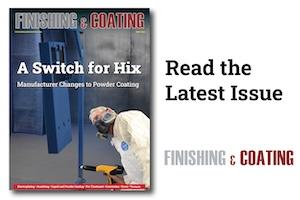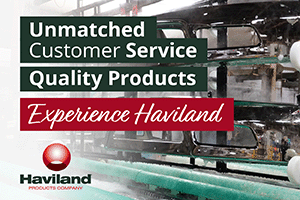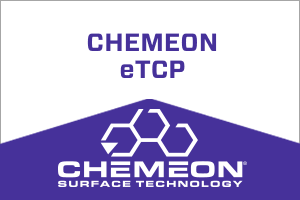Finishing and coating industry facilities might avoid litigation and penalties over PFAS in their systems if the U.S. Congress designates them as “passive receivers” of the chemicals.
In a recent hearing of the U.S. Senate Committee on Environment and Public Works (EPW), Chair Tom Carper (D-Del.) and Ranking Member Shelley Moore Capito (R-W.Va.) both spoke about concerns from various industries about being passive receivers of PFOA and PFOS, and whether they could be held liable for contamination when they are not responsible for causing it.
At the March 20 hearing, Sen. Carper said that the U.S. EPA has never pursued Comprehensive Environmental Response, Compensation, and Liability Act (CERCLA) action against passive receivers. He added that if explicit definitions of who is responsible for PFAS contamination are written, that would be the case with PFAS and PFOA chemicals.
‘Potential Unintended Impacts On Entities’
 Sen. Tom Carper“Though this designation is an important step forward, we have also heard concerns about the potential unintended impacts this designation could have on entities like municipalities and water treatment plants,” Sen. Carper says. “These facilities and entities do not use these chemicals but could be held responsible for downstream contamination simply because the contamination traveled through their facility. To date, the EPA has never enforced an action against a passive recipient of contamination under the Superfund law.”
Sen. Tom Carper“Though this designation is an important step forward, we have also heard concerns about the potential unintended impacts this designation could have on entities like municipalities and water treatment plants,” Sen. Carper says. “These facilities and entities do not use these chemicals but could be held responsible for downstream contamination simply because the contamination traveled through their facility. To date, the EPA has never enforced an action against a passive recipient of contamination under the Superfund law.”
Several finishing operations have said they discovered PFAS and PFOA in their wastewater system during testing over the last few years but have never knowingly used the chemicals in their operation.
In an article on www.FinishingAndCoating.com in 2022, shops reported that they suspected the PFAS contamination was coming from parts they were getting from their customers. When the shops pretreated and cleaned the parts, they unknowingly sent the PFAS on them to their own wastewater system through release agents, lubricants, or cutting fluids.
“We were shocked,” one owner said. “Nothing we have used in the past gave us any indication we would have traces in our system, but there it was. Of course, we had the issue of finding out how it got there.”
U.S. EPA Amid Metal Finishing Survey
 Sen. Shelley Moore CapitoThe discovery of how PFAS was making its way into some shops coincided with the U.S. EPA sending questionnaires to over 2,000 plating shops in early 2024 inquiring about the presence of PFAS in processes and in their wastewater treatment system.
Sen. Shelley Moore CapitoThe discovery of how PFAS was making its way into some shops coincided with the U.S. EPA sending questionnaires to over 2,000 plating shops in early 2024 inquiring about the presence of PFAS in processes and in their wastewater treatment system.
“It came in on the parts,” another finishing shop owner says. We assume it was fluids or oils at the machine shop or some other type of application they put on the parts. They sent it to us, and we cleaned and pretreated the parts and then finished them. But we are the ones who ended up with PFAS in our wastewater treatment system and filters.”
At the time, many metal finishing and powder coating operations assumed they would be held liable for any PFAS discovery in their waste systems. Some feared the cost of cleaning their systems and losing customers would cost them hundreds of thousands—if not millions of dollars—in clean-up costs, fines, and loss of business.
Sen. Carper says they are taking the concerns of businesses and entities like finishing operations into account when weighing the pros and cons of the U.S. EPA designating PFOA and PFOS as hazardous substances under CERCLA, which could impact whether those shops can stay in business.
“These facilities and entities are concerned that this designation could potentially saddle them with unjustified lawsuits until the EPA identifies the real responsible parties,” Sen. Carper says. “As you know, working through Superfund liability could take years under the current legislative structure of the Superfund law.”
Passive Receivers Unknowingly Received PFAS and PFOA
Sen. Capito echoed Rep. Carper’s sentiment about the “passive receivers” who unknowingly received PFAS and PFOA in their facilities.
“While I appreciate that the EPA’s claim that it plans to exercise ‘enforcement discretion,’ it will not provide a liability shield to those who had no role or responsibility for PFAS contamination,” Sen. Capito says. “Absent congressional intervention, the burden of cleaning up sites tainted with PFAS will fall on the shoulders of entities like drinking water and clean water systems, and waste management utilities. These entities are known as ‘passive receivers.’ They did not manufacture or generate PFAS and were unknowingly, or required by law, to catch or receive these contaminants. Given that the EPA plans to finalize its proposal, Congress must step in, I think, to address the overly broad sweep of CERCLA liability, as Congress has done in the past 11 times before.”
Sen. Capito says that to “effectively address these issues,” they have crafted a draft piece of legislation that focuses on creating a comprehensive strategy to tackle PFAS pollution without putting an undue burden on the passive receivers of the chemicals.
“I have made it clear that my support of any PFAS legislation is contingent upon also addressing liability under CERCLA and providing liability protections for those passive receivers,” she says.
A coalition of business entities put together by the U.S. Chamber of Commerce—including an electroplating and anodizing trade group—was one of more than 250 groups that wrote to the EPW committee to ask them to recognize passive receivers of PFAS and shield them from liability.
“We support accelerating effective and appropriate cleanup of PFAS in the environment,” the USCOC wrote in their letter. “We believe strongly, however, that applying the joint and several liability regime of the Comprehensive Environmental Response, Compensation, and Liability Act (CERCLA) via the novel listing of PFOA and PFOS as hazardous substances would only delay those efforts. Litigation and cost recovery do not equate to actual cleanup.”



































